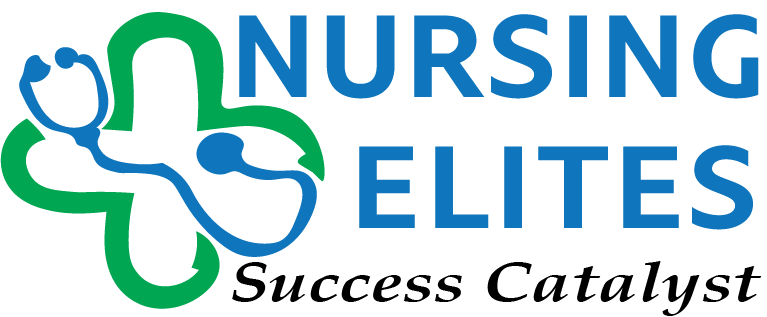Figures from the National League for Nurses show that 20% of students enrolling in various nursing programs in the U.S. drop out. Findings from other sources also reveal that the attrition rate is significant in the first semester among new students seeking how to pass nursing school. The academic difficulty, hands-on clinical aspects, and challenging tests feature prominently among the top reasons for withdrawal. Our nursing experts explain how to navigate the academic hurdles in a nursing program and achieve a desirable GGPA in the nursing school. In light of these intellectual intricacies, we also take nursing exams for students needing help due to time constraints, inadequate test preparation, or high-stakes exams.
What Does a Nursing School Entail?
A nursing school can be a graduate-level, bachelor’s, or diploma certification leading to any popular nursing designation. Success in nursing school requires students to master the theoretical didactic coursework, laboratory skills, and hands-on clinical skills. It also requires mastery of research projects, group presentations, case studies, and care plans manifesting as regular assignments.
The nursing school has a history of being challenging because it is not meant to be a passive experience. Learners can memorize formulas, but they must invest their time in understanding the course’s core topics. They will rely on the course core topics and critical thinking skills to pass the end-of-term exams and the National Council Licensing Exam (NCLEX).
Tune the Mind to the Course Topics
How to pass a nursing school is heavily dependent on the knowledge of the key nursing areas. Before enrolling in nursing school, learners must take their time to review the course orientation, curriculum and expectations. Additionally, the nursing concepts are primarily science and math. Math rigor and firm foundational science skills are prerequisites when evaluating personal eligibility for nursing schools.
Nursing concepts are broadly categorized into core topics, which are the different nursing designations or disciplines. Take the time to review each topic independently for a glimpse of what to expect. Common topics in nursing school include mental health, nursing research, adult health, pharmacology, pediatrics, OB-GYN, nursing research, public health, and nursing leadership. Other topics include anatomy and physiology, nursing ethics and legal issues, health promotion and education, research and evidence-based practice, and the culture of competence. A firm understanding of the core topics significantly impacts the student’s success in nursing coursework, clinical rotations, and exams.
How to Pass Nursing School: Adopt Active Learning
Success in nursing school requires 40+ hours per week dedicated to full-length studying. 1 in every four study hours go toward lecture time, while 3 hours are for study. Begin by having an excellent academic support system. These are study group members and friends a learner can benchmark or seek clarifications. Nursing school is mentally draining. A support system can also help a learner maintain mental health and experience less stress and anxiety.
After every class, invest 5 minutes into reviewing the materials learned. Studying the materials while fresh from class allows learners to formulate notes and solidify concepts learned. Also, examine the exam materials 2-3 days after the exams. Research shows that 50% of materials tested on class sittings and group works feature in the end-term exams. Lastly, attend all lectures and engage in collaborative learning, in-class activities, hands-on activities, and problem-based learning.
Master the Art of Writing the Best Nursing Essays
Most BSN nursing programs comprise approximately 3 weekly essays and about 5 discussion posts biweekly. However, this number is not standard since some students write only about 1-2 essays over 1 to 5 semesters. The essay length is anywhere between 500 to 2000 words, depending on the school and the program. The most prevalent essays are English 1, English 2, Health Promotion, A&P1, and A&P 2. In addition to case studies, these essays are mostly personal narratives, reflective papers, research papers, literature reviews, evidence-based practice, and argumentative papers. Other types include care plans, policy analysis, and concept analysis tasks.
Nursing essays are straightforward since they only need clarity, conciseness, and organization. The structure should be consistent, thorough, and well-thought. The only downside is with the critical thinking and applying concepts learned in class to draw well-reasoned conclusions. Take more essays and time practice to adapt to their essay requirements.
Have Targets for Every Exam
The best way to pass nursing school exams is to have targets for each. Nursing exams comprise unit and mid-term tests, final exams, clinical-competence tests, NCLEX exams, and Objective Structured Clinical Examinations. Programs like BSN and ABSN have comprehensive exams assessing the learners’ overall nursing knowledge at the end of the course. The number of tests depends on the program and nursing school. Most colleges require a 75-80 overall passing rate. Thus, a learner’s target score should be 78 to 80.
On average, learners should allocate 3-4 hours studying for their exams. Major tests like NCLEX exams need 6 to 12 weeks of full-length preparation. Develop a study schedule for time management, consistency, goal setting, customization, and complete coverage.
How to Pass Nursing School with Comprehensive and Professional Exam Help
How to pass a nursing school is a holistic journey from passing the entrance exam to performing in the comprehensive exam. Do not bear the brunt of the challenging exams alone. Contact our top nursing experts for timely, accurate, professional exam help services.





Pingback: Navigating the 10 Major Contemporary Issues in Nursing